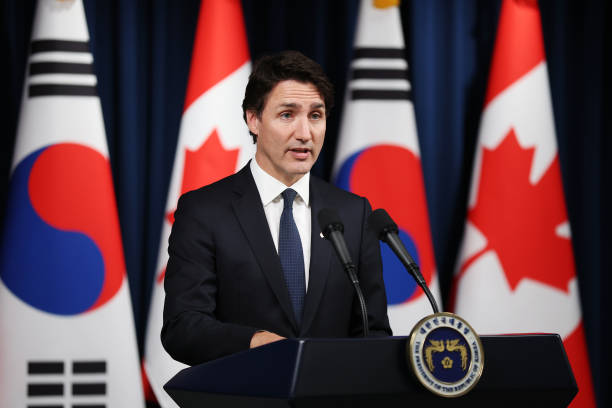

Canada's higher education sector is grappling with the effects of a surprising shift in immigration policy under Prime Minister Justin Trudeau. The sudden change has sparked concern, especially in universities and colleges, which have come to rely heavily on international students as a vital source of revenue. Trudeau’s unexpected policy reversal has left institutions scrambling to adjust to the new rules, highlighting the broader consequences this shift could have on other industries in the country that rely on immigrants for growth and innovation.
Over the years, international students have become a cornerstone of Canada's educational landscape. With increasing numbers choosing Canada as their destination for higher education, universities and colleges have welcomed this influx. The revenue generated from international students helps fund programs, maintain infrastructure, and offer a wider range of services. However, Trudeau’s recent shift in immigration policy, designed to tighten the rules and reduce the number of incoming immigrants, has put this system in jeopardy.
The policy change has left educational institutions questioning their future. Some schools are already reporting a decline in applications from international students, who are now uncertain about their ability to enter or stay in the country. This uncertainty also creates a ripple effect, not just within the education sector but throughout various industries, including healthcare, tech, and trade, all of which depend on the steady flow of newcomers to sustain their operations.
The sudden adjustment to immigration laws, paired with increasing restrictions, has caused confusion and anxiety. Many universities have warned that a decrease in international student enrollment could lead to a reduction in funding, possibly resulting in job cuts or limited educational opportunities for Canadian students. For these institutions, the sudden change feels like a blow to a critical revenue stream that they have become dependent on.
This policy change has raised questions about the future of Canada’s immigration system. Critics argue that the reversal could harm the country’s long-term economic stability, as industries that rely on a steady influx of workers may struggle to find skilled labor. The tech industry, in particular, has expressed concern, as many of its brightest employees are immigrants, and they are now uncertain about the opportunities available in Canada.
For some industries, the effects of this immigration U-turn are already being felt. The healthcare sector, especially, has warned of staffing shortages, as foreign-trained professionals are now facing increased hurdles to obtain work visas and stay in the country. Similarly, industries in trades and manufacturing are experiencing delays due to a lack of skilled labor, while tech companies struggle to find the talent needed to stay competitive on the global stage.
Prime Minister Trudeau’s abrupt policy shift has left many wondering what the future holds for Canada’s labor force. While the government argues that these changes are necessary to ensure more sustainable growth, others believe the decision could have serious long-term consequences. As industries brace for impact, it remains to be seen how Canada will navigate this new era of immigration restrictions.
Having an 'Identity Verified' badge or being 'Identity Verified' simply indicates that an individual has submitted information to complete our identity verification process or we have conducted internal verification using various authorized websites. While this process includes safeguards, it does not guarantee that the person is who they claim to be.
If you encounter any issues with this profile, please report them here. While all consultants who are verified have RCIC ID, we may not have the latest data in terms of their renewal/cancellation/discontinuation of their RCIC ID.
The "Verified Consultants" profiles are created using publicly available information, including data from the IRCC website, official consultant sites, other listing platforms, and social media. Immiperts.com is an independent platform, not affiliated with IRCC or any registered immigration consultants. To update, claim, or remove your profile, please contact us at [email protected].
╳